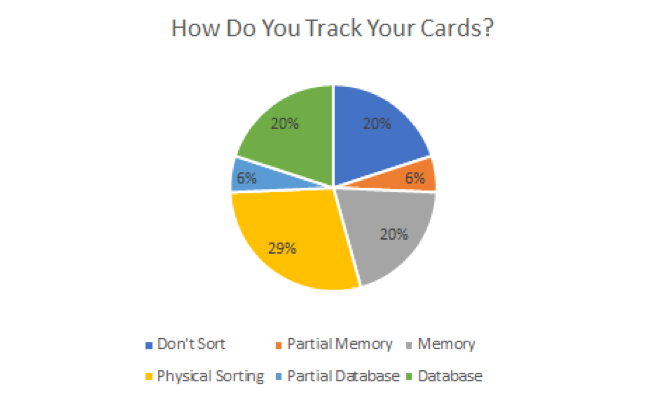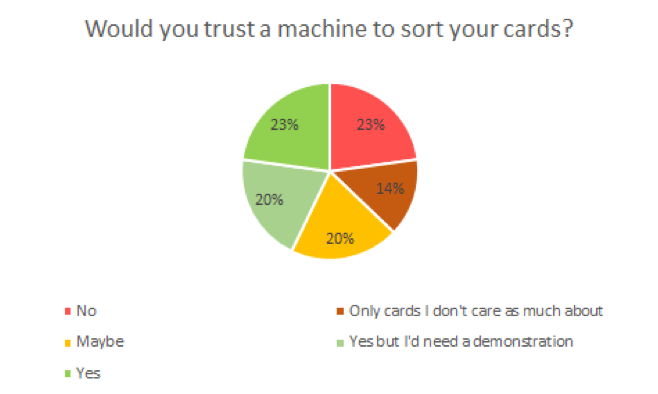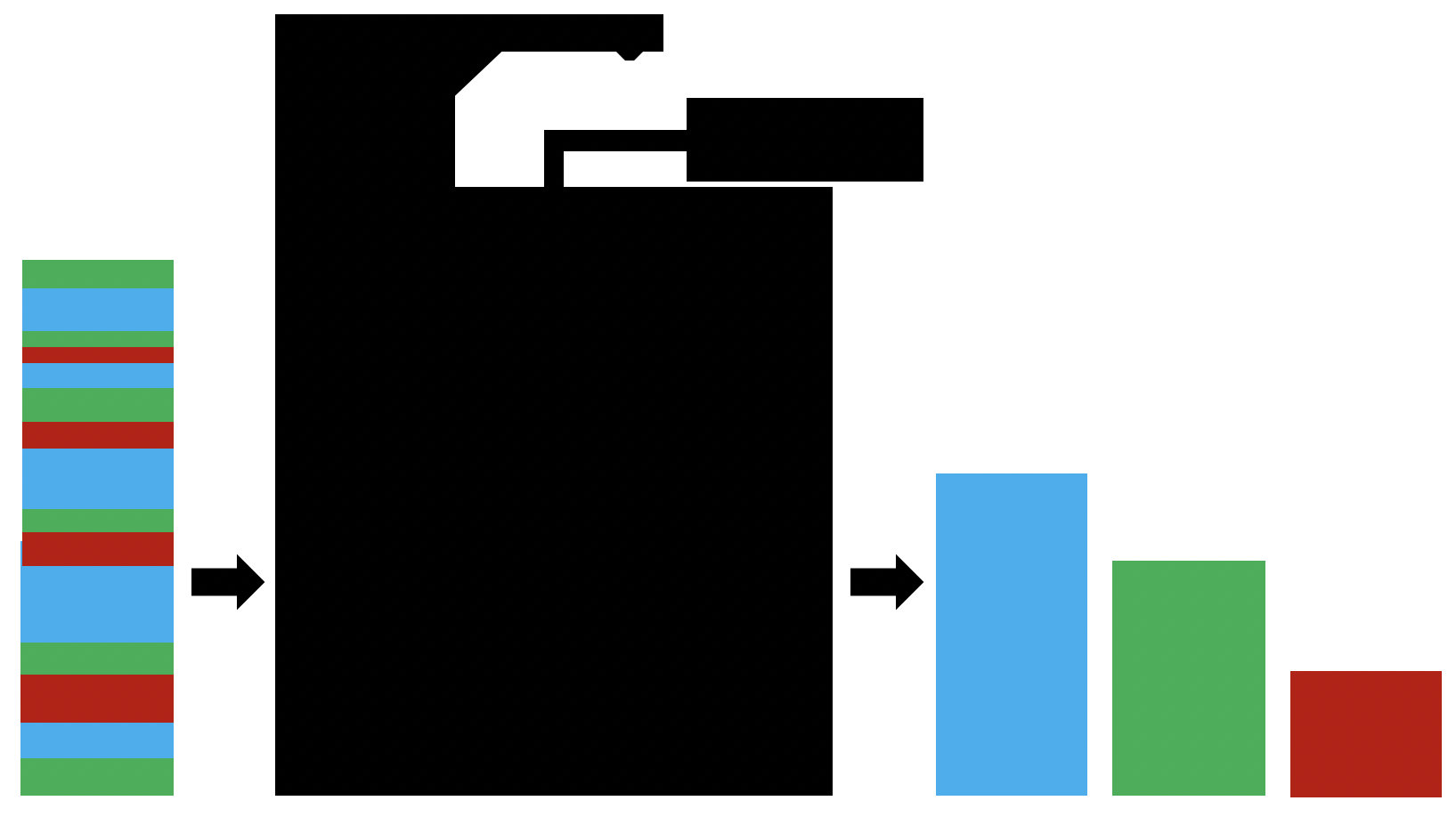We asked Magic:The Gathering players about their card collection and sorting habits
We found that the average player had 3500 cards worth about $1600 CAD, and spent up to 20 hours a month sorting their cards (the equivalency of 2.5 full work days). Our main results from the survey are shown in the graphs below (interested in a more in-depth analysis? Read our blog post here):

About 46% of the players surveyed used their memory to track their cards or did not bother tracking their cards at all. 29% of players relied on physical sorting, and only 26% of players kept some sort of database. If only the players who maintain a database are considered to have a formal method of tracking their cards, 74% of players currently do not have a reliable method of cataloguing their collection.

77% of players would trust a machine to sort their cards in some capacity (such as only sorting their less valuable cards), or could be coerced to allow a machine to sort their cards (if given a demonstration). In general, a good majority of players would be open to the idea of an automated card sorter.
From these results, there's an obvious need for a machine that can efficiently categorize, sort, and catalogue large volumes of TCG (Trading Card Game) cards using user defined criteria


